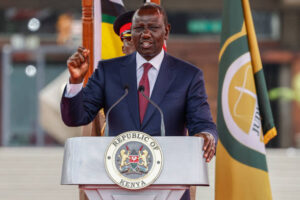
Dinah Rose
In the remote border town of Kiunga, nestled between Kenya and Somalia in Lamu County, life has been cast into prolonged darkness. For over 95 days now, residents have grappled with the daunting challenge of living without reliable electricity.

This predicament has starkly highlighted the region’s vulnerability to infrastructure deficiencies, leaving homes, businesses, and essential services struggling to function effectively.
The situation in Kiunga reflects a broader issue of inadequate infrastructure development in border regions. While other parts of Kenya enjoy steady progress in electrification, areas like Kiunga often face significant hurdles due to their remote location and sparse population. This disparity not only affects daily life but also hampers economic growth and social development in communities that are already marginalized.
Residents, accustomed to periodic challenges, have resorted to makeshift solutions such as generators and lanterns, but these alternatives are costly and unsustainable in the long run. The lack of reliable power not only disrupts households but also impacts crucial services such as healthcare facilities and educational institutions, which rely heavily on electricity for basic operations.
Local leaders and community representatives have repeatedly voiced their concerns, urging government authorities and energy providers to prioritize the electrification of border areas like Kiunga. They emphasize that reliable electricity is not just a convenience but a fundamental right that enables communities to thrive economically and socially. Without it, residents are left in a perpetual cycle of hardship and dependency on temporary measures.
The blackout in Kiunga has underscored the need for robust infrastructure planning and investment in remote areas. It serves as a poignant reminder of the disparities that persist in access to essential services across different regions of Kenya. Addressing these disparities requires coordinated efforts from both governmental bodies and private sector stakeholders to ensure that all communities, regardless of their location, have equitable access to reliable electricity.
As the blackout stretches into its third month, frustrations among residents continue to grow. Many feel neglected and unheard, grappling with the daily challenges of life in darkness. The resilience of the community is evident as they adapt to these adverse conditions, but there is a palpable sense of urgency for a sustainable solution that provides long-term relief from the electricity woes plaguing Kiunga.
In the face of these challenges, community solidarity remains strong. Local initiatives to mitigate the effects of the blackout, such as community support networks and resource sharing, have emerged, demonstrating the resilience and determination of the residents to overcome adversity together. Yet, the ultimate resolution lies in comprehensive infrastructural improvements that guarantee reliable electricity supply to Kiunga and similar border areas, empowering residents to build a brighter future for themselves and generations to come.




